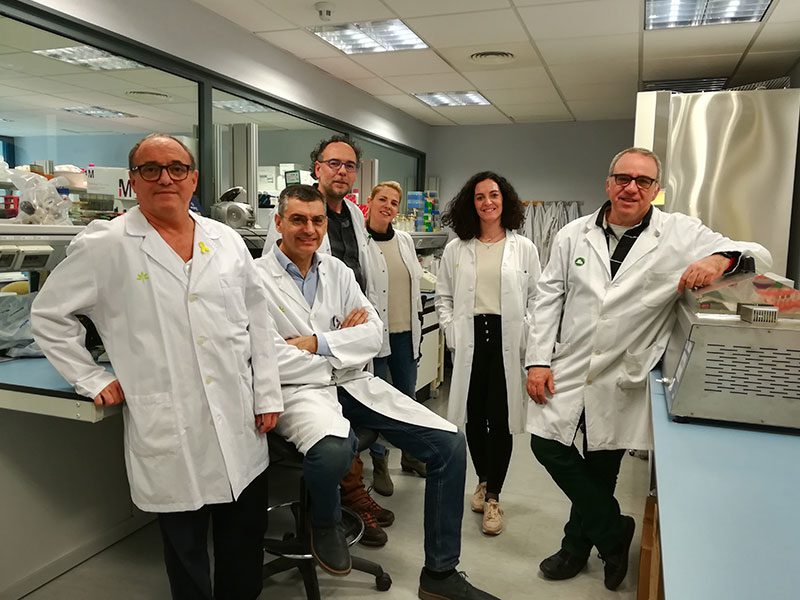A proteomic study takes a step towards new biomarkers for dilated cardiomyopathy

The collaboration between the ICREC (Heart Disease Group) and REMAR (Kidney Affecting Diseases Group) at the Germans Trias I Pujol Research Institute continues to generate promising results. The latest study has been published in Laboratory Investigation, of the Nature Group.
The study centres on new non-invasive biomarkers the blood for dilated cardiomyopathy (DCM), an enlargement of the heart, which is the most common cause of heart attacks not caused by ischaemia (restriction to blood supply) and leads to the need for a heart transplant in most cases. Despite the advances of recent years, the prognostic is usually poor for patients with the disease.
The IGTP scientists have compared circulating extracellular vesicles (EVs) from the plasma of DCM patients with those from healthy subjects. Vesicles are small non-cellular bodies found in body fluids. The researchers found important differences between the protein content of the EVs in the two groups. In the DCM patients they found several proteins over-expressed including; fibrinogen, serotransferrin, alfa-1-antitripsine, an important member of the apolipoprotein family including clusterin, stress reaction proteins amongst others. This has enabled the group to describe the proteomic characteristics of dilated cardiomyopathy compared with healthy patients, this opens the door to identifying biomarkers for the different heart diseases. The next steps will be to validate the results in different groups of patients and in other forms of heart disease.
